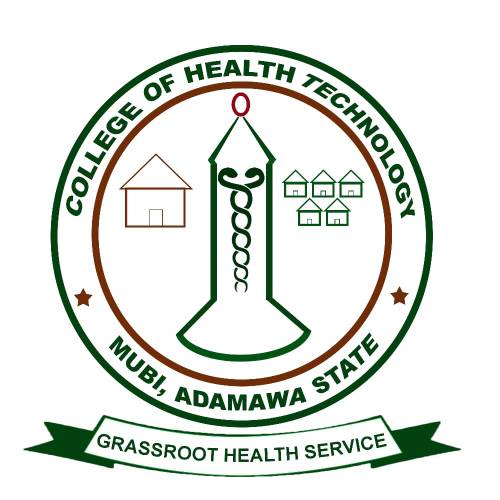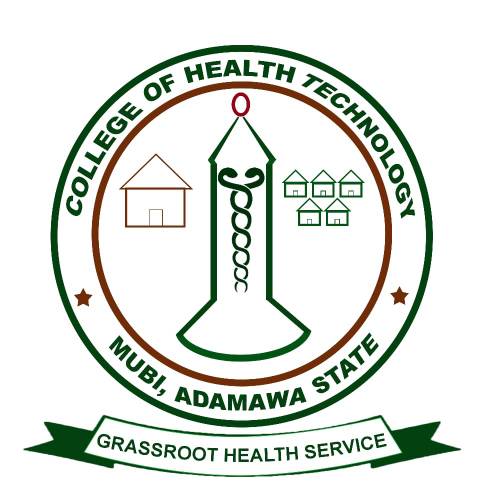Adamawa State College of Health Science and Technology, Michika, has opened applications for the 2025/2026 session. Various diploma, national diploma, and higher national diploma programmes are available. Follow the steps below to apply.

Adamawa State College of Health Science and Technology, Michika, is accepting applications for the 2025/2026 academic session.
Candidates can apply for diploma, national diploma, and higher national diploma programmes in health sciences and technology.
Available Programmes
Diploma & National Diploma Programmes
- National Diploma Community Health (2 years)
- Pharmacy Technician (3 years)
- Environmental Health Technologies (2 years)
- National Diploma Health Information Management (2 years)
- National Diploma Computer Science (2 years)
- Diploma Physiotherapy (3 years)
- Diploma Nutrition and Dietetics (2 years)
- Diploma Health Promotion and Education (2 years)
- Diploma Social Work (2 years)
- Abridgement Community Health (6 months)
- Diploma Epidemiology and Disease Control (2 years)
- Diploma Dental Therapy (2 years)
- Diploma Public Health Technology (2 years)
- Diploma Dental Surgery Technician (3 years)
- National Diploma Medical Lab. Technician (3 years)
- Diploma Food Hygiene (2 years)
- Diploma Reproductive Health & Family Planning (2 years)
- Certificate in Food Hygiene and Sanitation (2 years)
- Diploma Medical X-Ray Technician (2 years)
- Diploma Mental Health (2 years)
- Diploma Medical Optometry/Opticianry (2 years)
Higher National Diploma (HND) Programmes
- HND Environmental Health Technology (2 years)
- HND Health Promotion and Education (2 years)
- HND Health Information Management (2 years)
- HND Dental Surgery Assistant (2 years)
- HND Community Health (2 years)
Entry Requirements
- Diploma/National Diploma/Higher National Diploma programmes require five credit passes in Basic Science subjects from NECO, WAEC, or GCE, in not more than two sittings.
- Certificate courses require four passes, including English Language and Mathematics, plus two science subjects (Biology, Chemistry, Health Science) and two other subjects from NECO, WAEC, GCE, GRADE II, or NABTEB in not more than two sittings.
- All applicants must obtain a JAMB Examination before admission.
Application Process
The online application starts 3rd March 2025 and closes 30th April 2025 on the College Admission Portal.
Steps to Apply
- Account Activation
- Click on New Application.
- Enter your full name and phone number.
- Login
- Use your phone number as username and password.
- Payment
- Generate RRR and pay N6,500 at any bank (Zenith Bank or Union Bank recommended).
- Choose Programme
- Log in after payment and select your preferred programme.
- Educational Qualification
- Enter up to two sittings of O’level results.
- Direct entry applicants must provide certificates and institution details.
- Upload Passport
- Upload a passport photograph in JPEG format.
- Submit Application
- Click Submit after entering all required details.
- Print Application Form
- The serial number on the form is the Application ID, which serves as the username for login.
Complete the process before the deadline to secure admission.
Conclusion: The State of Education in Nigeria
Education in Nigeria is a critical sector that holds the key to the nation’s development, yet it faces numerous challenges that hinder its potential to transform the country. Over the years, Nigeria has made significant strides in expanding access to education, particularly at the primary and secondary levels. The Universal Basic Education (UBE) program, launched in 1999, aimed to provide free and compulsory education for all children, reflecting the government’s commitment to improving literacy and educational outcomes. However, despite these efforts, the Nigerian education system continues to grapple with systemic issues that undermine its effectiveness and inclusivity.
One of the most pressing challenges is the inadequate funding of the education sector. Despite international recommendations that countries allocate at least 15-20% of their annual budget to education, Nigeria consistently falls short of this benchmark. This underfunding has led to a lack of infrastructure, insufficient teaching materials, and poorly equipped classrooms, particularly in rural areas. Many schools operate without basic facilities such as electricity, clean water, and functional laboratories, creating an unconducive learning environment. Additionally, the shortage of qualified teachers, coupled with low morale due to poor remuneration, has further exacerbated the quality of education.
Another significant issue is the disparity in access to education across different regions and demographics. Northern Nigeria, for instance, has some of the lowest literacy rates in the country, largely due to cultural and religious factors that discourage formal education, particularly for girls. Gender inequality remains a persistent problem, with millions of girls out of school due to early marriages, poverty, and societal norms. This disparity not only limits individual potential but also hampers national progress, as education is a powerful tool for empowering women and reducing poverty.
The quality of education is another area of concern. While enrollment rates have improved, the standard of education remains low, with many students unable to achieve basic literacy and numeracy skills. The curriculum is often criticized for being outdated and not aligned with the needs of the 21st-century economy. There is a growing demand for a shift towards skill-based and vocational education to equip students with practical skills that can address unemployment and drive economic growth. Furthermore, the frequent strikes by academic staff in tertiary institutions disrupt the academic calendar, leading to prolonged periods of inactivity and diminishing the value of degrees awarded by Nigerian universities.
Despite these challenges, there are reasons for optimism. The rise of private educational institutions and the increasing adoption of technology in education offer new opportunities for innovation and improvement. Online learning platforms, digital tools, and e-learning solutions have the potential to bridge the gap in access to quality education, especially in underserved areas. Additionally, the government and non-governmental organizations are increasingly collaborating to address issues such as girl-child education, teacher training, and infrastructure development.
In conclusion, while Nigeria’s education system faces significant obstacles, it also possesses immense potential for transformation. Addressing the challenges of funding, access, quality, and equity requires a concerted effort from all stakeholders, including the government, private sector, civil society, and international partners. By prioritizing education and implementing sustainable reforms, Nigeria can unlock the potential of its youth, foster economic growth, and secure a brighter future for generations to come. Education is not just a fundamental human right; it is the foundation upon which the nation’s progress and prosperity depend.


